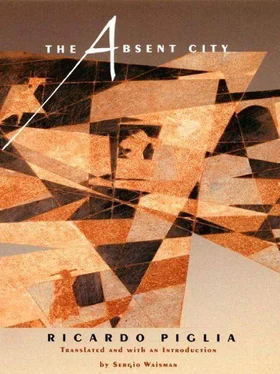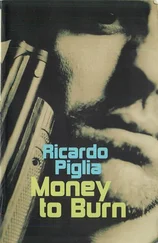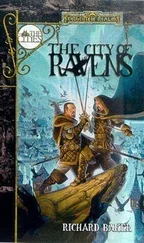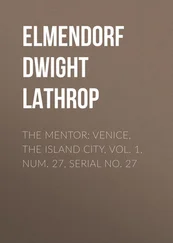“When I was a student and lived in La Plata, I earned a living teaching Spanish to right-wing Czechs, Poles, and Croats who had been expelled from their countries by the advance of history. Most of them lived in an old neighborhood in Berisso called ‘The Austro-Hungarian Empire’ where immigrants from Central Europe had settled since the end of the nineteenth century. They rented a room in the wood and tin tenement houses and worked in the cold-storage plants while they looked for something better. The Congress for Cultural Freedom, a support organization for Eastern European anti-Communists, protected them and did what it could to help them out. They had an agreement with the University of La Plata to hire literature students to teach them Spanish grammar. I met many pathetic cases during those years, but none as sad as Lazlo Malamüd. He had been a famous critic and professor of literature at the University of Budapest; he was the leading Central European authority on the work of José Hernández. His translation of Martín Fierro into Hungarian had received the annual prize of the International Association of Translators (Paris, 1949). He was a Marxist, he had belonged to the Petöfi Circle, and had survived the Nazis, but he fled in 1956 when the Russian tanks entered Hungary because he could not handle being slaughtered by those whom he had placed his hopes on. And then here, he was surrounded by the right-wing immigrants. To get away from this group he sought out intellectual circles and made himself known to them as a translator of Hernández. He could read Spanish properly, but he couldn’t speak it. He had memorized all of the Martín Fierro and that was his basic vocabulary. He had come here in the hope of obtaining a position in the university; to get it, all he had to do was be able to teach in Spanish. They had asked him to give a lecture in the College of the Humanities, where Héctor Azeves was working; his future depended on that lecture. The date was approaching and he was paralyzed with fear. We met for the first time in mid-December; the lecture was scheduled for the fifteenth of March. I remember that I took cable car number twelve and traveled to Lazlo’s dingy room in the lower part of Berisso, behind the cold-storage plant. We sat on his bed, placed a chair in front of us as a table, and began to work with the Lacau-Rosetti grammar book. The university paid me ten pesos per month, and I had to keep a kind of record with Malamüd’s signature to confirm the attendance. I would see him three times a week. He talked to me in an imaginary language, full of guttural r ’s and gaucho-like interjections. He tried to explain to me in a gabble the desperate feeling of being condemned to expressing himself like a three-year-old child. The imminence of the lecture had him plunged into such a panic that he could not go beyond the first-conjugation verbs. He was so dejected that one afternoon, after a very long silence, I offered to read whatever he wanted to say in his place; then poor Lazlo Malamüd let out a screeching laugh to let me know that in spite of the desperate situation he had not lost his sense of the ridiculous. How was I to read his lecture if he was the one who had to teach?
“ ‘I no worrk then die of this estrra-orrdinary suffer-ring,’ he said.
“It was funny, it’s funny to see someone who doesn’t know how to speak your language try to express himself with words. One afternoon, I found him sitting down, facing the window, without any strength left, ready to give up.
“ ‘No more, no,’ he said. ‘An infamy my life. I don’t deserrve all this a-humiliation. First I becoming angr-ry then the melancholy. Eyes sprring tearrs that don’t alleviate their suffer-ring.’
“I always thought that that man, trying to express himself in a language of which he only knew its greatest poem, was a perfect metaphor for Macedonio’s machine. Telling everyone’s story with lost words, narrating in a foreign tongue. See? They gave me this,” he said to Junior and showed him a cassette tape. “A very strange account. The story of a man who does not have words to name the horror. Some say that it’s fake, others say it’s the pure truth. The inflections of speech, a harsh document, directly from reality. There are many copies throughout the city. They make them in Avellaneda, in clandestine labs out in the province, in the cellars of the Mercado del Plata, in the subway at Nueve de Julio. They say that they’re fake, but that’s not going to stop it.” Renzi was laughing. “If the Argentine novel, the patriotic verse, started with Cambaceres, then that’s what you have to write about, Junior — what are you waiting for?”
“There’s a woman,” Junior said. “She calls me on the telephone, passes information on to me. Now she says I should go to a hotel, the Majestic on Piedras and Av. de Mayo. There’s a guy there, a certain Fuyita, a Korean who works in the Museum, a security guard, the night watchman. I don’t know, maybe she works for the police.”
“In this country, everyone who’s not in jail works for the police,” Renzi said, “including the thieves.”
Junior stood up. He was leaving.
“Did I give you the recording?” Renzi asked. “Here,” he said, and handed him a cassette tape. “Listen to it, then you can fill me in.”
“Perfect.”
“I’ll meet you here, tomorrow.”
“At six,” Junior said.
“Be careful.”
“Yeah.”
“It’s full of Japanese out there,” Renzi said.
Outside, the cars were coming and going. “They are always watching, even if there is no point to it,” Junior thought. The sky was gray; at 3:50 P.M. the president’s helicopter flew over the avenue toward the river. Junior checked the time and entered the subway. Toward Plaza de Mayo. He leaned back against the window, half asleep, letting the swaying train move him around. They look at each other, the dumbshits, they travel underground just for that. An old woman traveled standing up, her face swollen from so much crying. Simple people, proletariats dressed to go out, modern clothes from Taiwan. Couples holding hands, checking out their reflections in the window. The dark ones with black hair, the Peronios, as Renzi called them. “In the middle of everyone they shaved me clean like a nobody,” Junior sang to himself. “I’m mute. I sing with my thoughts. The barber, an Italian immigrant on Av. Constitución, didn’t want to do it at first. ‘What are you trying to do, kid?’ I don’t want lice,” Junior had answered. He shined his white bowl with brilliantine (“I don’t want lice”). Miguel MacKensey (Junior), an English traveler. The lighted subway sped through the tunnel at eighty kilometers per hour.
The Majestic Hotel, with its marble entrance and dilapidated walls, was right on the corner of Piedras and Av. de Mayo. In the mezzanine at the top of the stairs there was a desk, and behind it an old man petting a roan cat, his face next to its nose. Junior saw a carpeted hallway, several closed doors, and the entrance to a basement. He stopped warily and lit a cigarette.
“This animal that you see right here,” the old man said without looking up, “is fifteen years old. Do you know how old that is for a cat?” He dragged his words as he spoke, with an intonation somewhere between respectful and cunning, his thin neck buried in the lustring lapels of a corduroy jacket. He was standing between the key rack and a glass door, and held the cat on the counter. The bow-legged animal began to move slowly, arching its back. “This animal is a miracle of nature. He understands as if he was a person. I brought him from out in the country and he has stayed here ever since. A gaucho cat.” When he smiled his small eyes became smaller. “From Entre Ríos.”
Читать дальше












